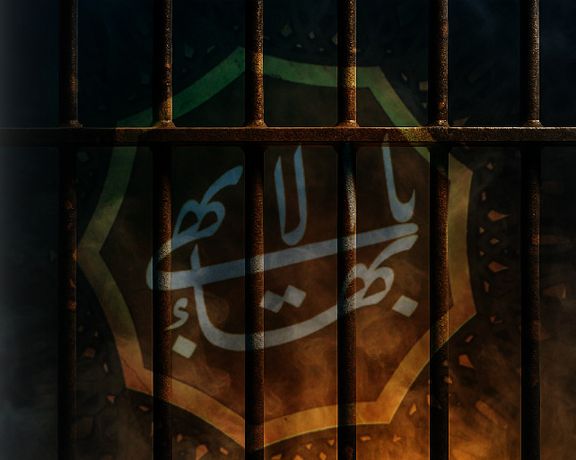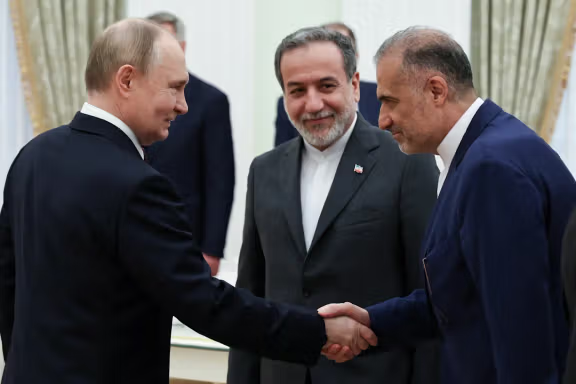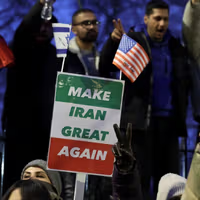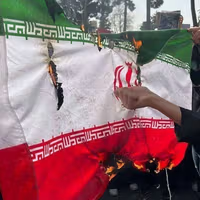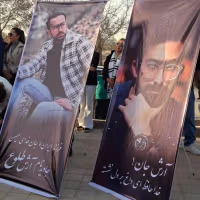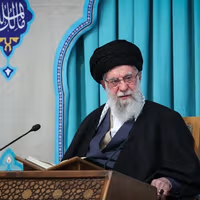“With this year’s low rainfall, surface and underground water resources have declined and the situation is not favorable,” Hossein Haghighi, head of Tehran Water and Wastewater Region 4, told the semi-official ISNA news agency. “If it does not rain, we expect even tougher conditions in autumn.”
Haghighi said authorities had adopted a “multi-layer” approach that included reducing water pressure in some areas, public awareness campaigns and promoting low-flow devices to curb household use.
New buildings are required to install storage tanks and pumps before connecting to the network, he said. Tariffs are structured to heavily subsidize low users, while “bad consumers” – the highest tier – pay sharply higher rates. “After three warnings, we cut water to heavy users for 12 hours,” Haghighi said.
'Day zero' warnings disputed
Haghighi’s remarks followed a stark warning from Mohsen Dehnavi, spokesman for Iran’s Expediency Council, who said the water crisis “has passed the warning stage and entered a critical phase.”
“Continuing this trend could bring some areas of the capital to day zero in the coming weeks – a day when drinking water is cut off in many neighborhoods and the daily life of millions is disrupted,” Dehnavi said in a post on the social media platform X.
He blamed “five years of drought, overuse of underground aquifers, rapid urban population growth, high per-capita consumption and structural weaknesses in water management” for pushing Tehran’s reservoirs towards dangerous depletion.
He called for “strict conservation policies, renovation of ageing networks, industrial consumption controls and the adoption of smart, real-time resource management systems.”
Isa Bozorgzadeh, spokesman for Iran’s water industry, rejected the “day zero” assessment, saying that with further reductions in demand the crisis could be “acceptably managed.”
“If Tehran reduces its consumption by another 12%, the capital will pass through this crisis without severe disruption,” he said. Bozorgzadeh added that July saw a 13% drop in use compared with last year, and consumption so far in August was down more than 14%.
Drought, heatwaves, and blackouts
The water crisis comes after months of extreme heat that has triggered rolling blackouts and the temporary shutdown of government offices in several provinces to conserve energy.
Iran’s meteorological organization says the country has faced a near-constant drought for more than two decades, with rainfall down sharply this year and snowpack levels at historic lows.
Environmental activists have long warned that Iran’s sprawling capital – home to nearly 10 million people – is acutely vulnerable to water shortages due to inefficient infrastructure, leaky pipes, and limited investment in modern conservation technologies.
Climatologist Nasser Karami told Iran International earlier in August that the water crisis in Iran transcends drought and is a product of government mismanagement, militarized agriculture and deliberate manipulation.
According to Haghighi, Tehran’s average household water use is more than twice the international standard.
“Changing consumption habits is no longer optional – it’s a necessity,” Haghighi said. “If every household reduces just 10% of its water use, the capital can avoid the most severe restrictions.”
Elias Hazrati, head of the government’s information council, said on Tuesday: “Today, the country is in a completely stable situation. There is no crisis, and no war is taking place or about to begin.”
